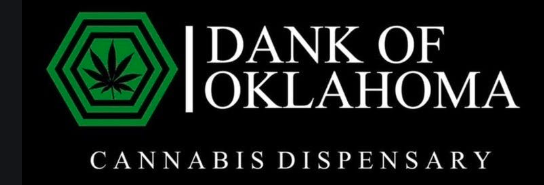Good and strange morning everybody. We hope everyone is staying home and staying safe. We will do our best to keep you entertained without IP news. And, bonus, you can expect a new blog article this Thursday (very in topic)!
Dior being sued for copyright infringement
@swedishandstylish is an Instagram account dedicated solely to expensive brand bags and, more precisely, to picturing said bags in fancy ways or with fancy backgrounds. The problem is that, allegedly, Dior has been using two very popular images owned by Swedishandstylish LLC in their lookbooks and as the cover of a lookbook without the authorization of the company and for its own commercial gain (which we all know by now is contrary to the exclusive rights granted by copyright). By using the photos without permission, Dior has failed to pay license fees and other financial costs. The company has now filed to copyright infringement claims, requesting monetary damages, for Dior to refrain from using the images and to recall any products or works that incorporate said images.
Spotify vs. XSpotify
There is no denying that Spotify is the most popular music streaming service in the world. And once you become a paying subscriber you gain access to some extra features such as an ad-free experience (the most important part of the paid service…) and the ability to download tracks to their own device for offline enjoyment. No worries there, since these tracks are encrypted and cannot be enjoyed outside the Spotify Software.
One tool that has antagonized Spotify’s business is a Windows-based application called “XSpotify”. This tool has become very popular, not only because it blocks the ads, but also because it allows you to download songs from Spotify and then use them however and whenever.
Taking into account all the above, it’s no surprise that Spotify has taken legal action against this tool. A takedown notice was sent over the website where the app was available for download. Spotify will now go after the other website where the app is still available and continue its fight against infringement.
Bank of Oklahoma vs. Dank of Oklahoma
“Dank of Oklahoma” is a cannabis dispensary that has been sued by the Bank of Oklahoma for alleged trade mark infringement.

|

|
According to the Bank of Oklahoma, both marks use a polygon logo and text font that are quite similar in their marks and considers that this affects the Bank’s reputation for providing high quality, dependable financial services.
Let’s see how this unfolds.
Led Zeppelin wins the appeal in favor of “Stairway to Heaven”
The Ninth Circuit of Appeal confirmed that “Stairway to Heaven” does not infringe the copyright of the instrumental track “Taurus”. If you remember, we already reported back in the day on this case that started in 2014, that Zeppelin won in 2016 and that was sent back to be judged in 2018 due to “erroneous jury instructions”. I will not go into detail here as the concepts and explanations do not apply to EU law and are only relevant when litigating in the US.
Supreme vs. Supreme
Supreme New York is a well-known streetwear brand owned by Chapter 4 that is fighting against legal counterfeits in Europe and has already been successful in the UK, France or Italy. The new small victory comes now from Spain, where the Audiencia Provincial de Barcelona has ordered precautionary measures against “Supreme Spain” owned by Elechim Sports (Elechim took the lead to register “Supreme Spain” in Spain before Chapter 4), that will now have to stop selling products that include the brand “Supreme” or “supreme Spain”. The AP de Barcelona considered proven that Supreme is a notoriously well-known brand, not only in the US but also overseas. A brand that has acquired a reputation through collaborations with other luxury brands such as Louis Vuitton or Chanel.
Girl Scouts protecting their cookies
California cannabis-edibles company Kaneh Co. was promoting its cannabis-infused cookies as similar to several of the Girl Scouts’ cookie brands. In an e-mail advertisement, the company was comparing its “Toasted Coconut Caramels” to the Scouts’ Samoas; its “Lemon Sugar Cookies” to the Scouts’ Lemonades; and its “Salted Toffee Blondies” to the Scouts’ Toffee-tastic cookies. All of these descriptions were only included in the said email but never appeared in any print or online advertisements. Understandably, the Girl Scouts were not amused to be associated with cannabis. The Girl Scouts considered such use of their cookie names trademarks to be misappropriation, even considering the possibility to send a cease and desist request.
This is not the first legal battle of the Girl Scouts against a cannabis company, back in the day, they had to take action to stop a company from using “Girl Scout Cookie” as a strain name. And as legalization advances, problems like this will most likely arise.
Japan to protect manga against piracy
In 2012, Japan’s government established that downloading unlicensed music and movies was prohibited and, in theory, punishable by up to two years in prison. Literary works were not covered by this provision, hence, illegal downloading of manga was not punished. After months of deliberation, the Japanese government has just approved a new bill that will now criminalize the illegal downloading of manga, magazines and academic publications. While prohibiting illegal downloads, the government has tried to strike a balance allowing downloading images or articles for private use only.
This is all for today. Please, try to keep safe and keep busy with happy things. See you on Thursday!
Details
- Publication date
- 17 March 2020
- Author
- Executive Agency for Small and Medium-sized Enterprises
